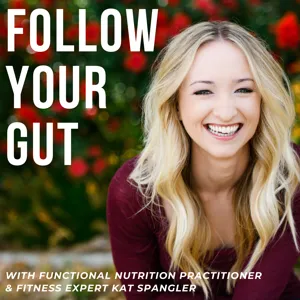Podcast Summary
The significance of how we eat beyond what we eat: New research emphasizes the importance of considering our bodies' needs beyond just the food we consume, as dietary patterns play a role in overall health.
Both the "grazers" who snack frequently and the "breakfast, lunch, and dinner" team have valid points, but the latest nutrition science leans towards the importance of not just what we eat, but also how we eat. The ZOE Science and Nutrition study, led by top nutritional scientist Sarah Berry, has highlighted the significance of dietary patterns. Previous studies have attempted to evaluate meal timing and frequency, but the data was not reliable due to small sample sizes. Now, with a larger study, we have evidence that the way we eat our foods matters. The debate between eating little and often or sticking to three square meals a day has been ongoing, but Sarah's research through the Zoe Predict program emphasizes the importance of considering our bodies' needs beyond just the food we consume. By taking part in The Big IF study, you can discover if intermittent fasting can work for you and contribute to this groundbreaking research.
The quality of food is more important than the quantity or frequency of meals: Focus on a balanced diet rich in nutrients for optimal health, rather than meal frequency or size.
Both the idea of consuming three square meals a day and multiple smaller meals throughout the day have their merits, but the key to maintaining good health lies more in the quality of the food consumed rather than the quantity or frequency of meals. The gut bacteria, like us, need rest and consistent fuel. Constantly eating without rest can negatively impact the good bacteria in our gut, making it harder for our bodies to function optimally. On the other hand, frequent dips in blood sugar levels can lead to mood swings, irritability, and unhealthy food choices. However, the Zoe Predict study found no significant difference in health outcomes between those who consumed three main meals and those who consumed multiple smaller meals throughout the day. Ultimately, the most important factor is to focus on consuming a balanced diet rich in nutrients, rather than fixating on meal frequency or size.
Is Three Square Meals Better Than Grazing?: Listen to your body's hunger and fullness signals and choose a dietary pattern that suits you, as there's no definitive answer to whether three square meals or grazing is better for everyone. Avoid eating too late into the evening.
There is no definitive answer to whether eating three square meals a day or grazing throughout is better for everyone. It's essential to listen to your body's hunger and fullness signals and choose a dietary pattern that works best for you. Recent research indicates an average insignificant difference between the two approaches. However, Sarah did caution against eating too late into the evening, which is a topic for further exploration. This episode is part of a series celebrating the launch of the Big IF study, which investigates how intermittent fasting affects mood, energy, and hunger. To participate in the study for free, visit joinzoe.com/thebigif or use the link in the show notes. This episode was produced by Fascinate Productions, with support from Yellow Huwins, Martin, and Alex Jones at ZOE. Stay tuned for daily updates from ZOE until the next regular episode.





